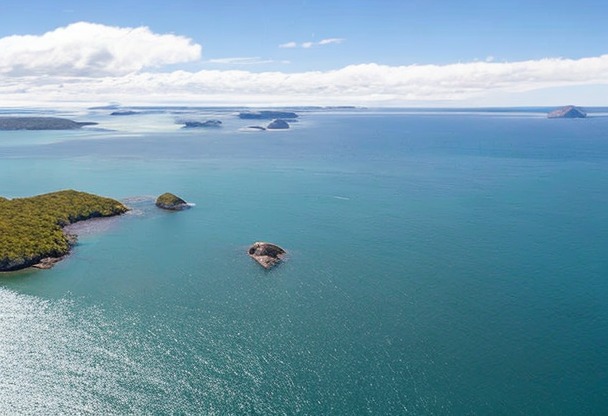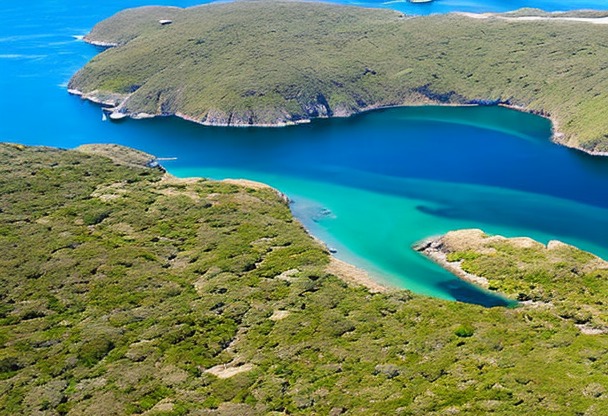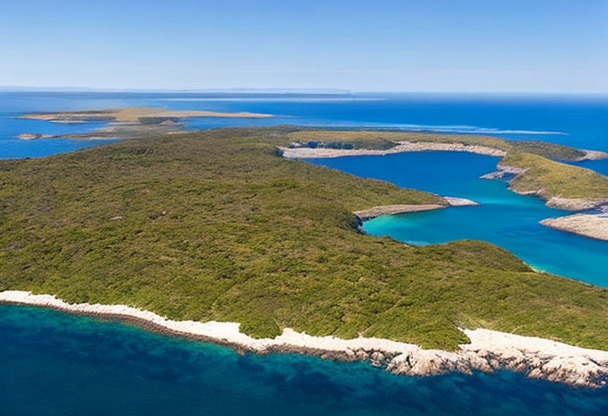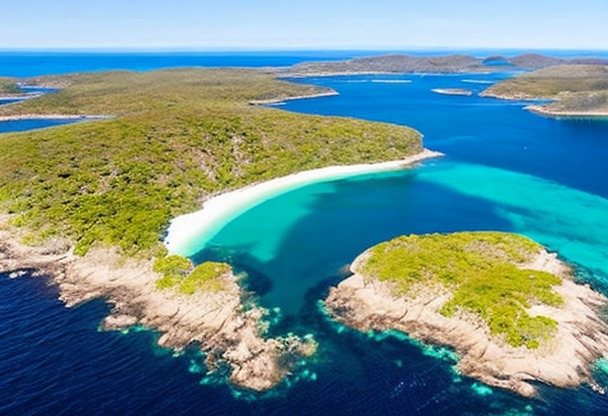WHEN TO TRAVEL TO THE Falkland Islands
Choosing the right time for your trip to the Falkland Islands can make all the difference. It's important to consider weather elements, seasonal events and peak tourist periods to maximize your travel experience.

Location
Climate
The best time to travel to the Falkland Islands
The climate of the Falkland Islands is oceanic and subpolar, which means that temperatures are generally cool and weather conditions can be variable. Precipitation is fairly frequent, but generally light. It is therefore important to consider the weather and climatic conditions before planning your trip..High season: November to March
High season in the Falkland Islands is from November to March. During this period, temperatures are relatively mild, averaging between 9°C and 14°C. These are also the months with the most sunshine, with around 6 to 8 hours of sunshine a day. November and December are also the breeding season for many animal species, including penguins, elephant seals and sea lions. High season is the ideal time to visit the Falkland Islands if you want to enjoy outdoor activities and observe the wildlife..Low season: April to October
The low season in the Falkland Islands runs from April to October. During this period, temperatures are cooler and weather conditions can be less clement, with more wind and rain. snowfalls and wind. Nevertheless, it's still possible to visit the archipelago during these months, but it's important to be well-prepared and to bring clothing suited to the damp and cold. The advantages of traveling during the low season include fewer tourists and generally lower accommodation rates.Major cultural events and public holidays
Beyond the climate and seasons, it's important to take into account the cultural events and public holidays that take place in the Falkland Islands. Here are a few not to be missed:- Falkland Islands Sports Fishing Festival : This annual festival takes place in March and celebrates sport fishing, with competitions and various activities for fishing enthusiasts.
- Stanley Marathon: held in March, this marathon attracts runners from all over the world who come to take up the challenge of running in sometimes difficult weather conditions.
- Fête de la Reine : celebrated on the second Saturday in June, is an opportunity for Falkland Islanders to pay tribute to the Queen of England.
- Public holidays : The Falkland Islands observe several public holidays throughout the year, including Liberation Day (June 14), Labor Day (first Monday in May) and Christmas (December 25).
Practical tips for planning your trip to the Falkland Islands
To help you plan your trip to the Falkland Islands, here are a few tips and recommendations:- Book your accommodation and activities in advanceEspecially if you plan to travel during the high season. Accommodation options may be limited and it's best to secure your accommodation before you arrive.
- Prepare for wind and humidity. Bring warm, waterproof clothing and comfortable, water-resistant walking shoes.
- Find out about visa requirements. Citizens of some countries are exempt from visa requirements for short-term tourist stays, but it's important to check entry requirements before you leave.
Insurance

Your credit card does not cover you in all situations, that is whyIt is essential to take out insurance before you leave to avoid any unpleasant surprises. If you need to see a doctor or be hospitalized, in some countries, medical costs are very high and you will then find yourself having to pay several thousand euros.
Our partner Chapka Insurance proposes the contract CAP ASSISTANCE 24/24 with many essential guarantees.


Flights

Your flight has been cancelled or delayed ?
You may be eligible for a compensation of up to €600 ! For this, lawyers are responsible for handling your claim with the airline and are only paid when the reimbursement is effective.
In conclusion, no financial risk for you, only advantages!
Most popular visas in the Falkland Islands
In the Falkland Islands, several types of visa are available for people wishing to stay temporarily or settle there permanently. Here are the main visas in greatest demand:- Tourist visa Falkland Islands Visa: This is the visa most commonly requested by international travellers wishing to visit the Falkland Islands for a specific period. This visa generally allows a 30-day stay, renewable once.
- Work visa This visa is intended for people who have received a job offer from a company based in the Falkland Islands. The work visa is granted for an initial period of two years, with the possibility of extension.
- Business Visa Falkland Islands: International entrepreneurs and investors interested in economic opportunities in the Falkland Islands can apply for a business visa. This type of visa is issued for a renewable period of up to three years.
- Student visa International students admitted to an educational institution in the Falkland Islands can apply for a student visa. The duration of this visa depends on the length of studies, and can be extended if necessary.
International tourism figures for the Falkland Islands
Tourism is a key sector of the Falklands economy, contributing significantly to economic growth and job creation. Here are some recent figures for international tourism in the Falkland Islands:- In 2019, the Falkland Islands welcomed nearly 70,000 international visitorsThis represents an increase of 6% over the previous year.
- Tourists came mainly fromNorth America, Europe and Latin Americawith a notable presence of visitors from UNITED STATESfrom United Kingdomof France, ofGermany and ofArgentina.
- The majority of international visitors (more than 50%) came to the Falkland Islands in connection with tourist cruisesThe island is a popular destination for cruise ships, stopping off for one or more days.
- The most popular activities among tourists were discovering the local flora and faunaWe also offer cultural and historical visits, particularly those related to the Falklands War.
Impact of oil drilling on immigration to the Falkland Islands
The recent development of the drilling for oil in the Falkland Islands has also had an impact on immigration and visa demand. The oil industry requires a skilled and experienced workforce, which is not always available locally. This has led to an increase in demand for work visas for foreign professionals wishing to work in this field in the Falkland Islands.Current and future trends
With the continuing growth of international tourism and the development of the oil industry, we can expect immigration to the Falkland Islands to continue to increase in the years to come. The Falklands authorities will therefore need to adapt their immigration policy to meet this development, while preserving the balance between the territory's economic and environmental needs.Challenges and opportunities
Increased immigration to the Falkland Islands represents both challenges and opportunities for the territory. On the one hand, it can lead to increased pressure on local infrastructure and services, as well as a risk of degradation of the natural environment. On the other hand, the arrival of new international residents and visitors helps to diversify the Falklands economy, creating jobs and stimulating growth. To ensure sustainable and harmonious development, it will be essential for the Falkland Islands to put in place appropriate immigration policies that encourage the integration of new arrivals, while preserving the assets that make this territory a unique and attractive destination.

